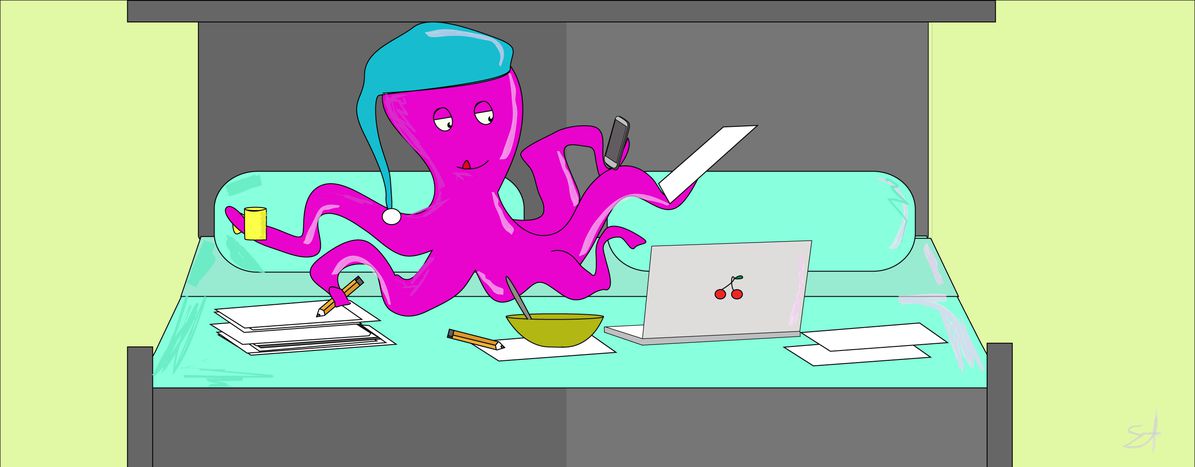
Behind the Numbers: Europe's freelance army
Published on
Translation by:
Charlotte WalmsleyIn the ocean of European workers, there are many different types of fish. While some swim in schools, following the instructions of a leader, others follow their own path and decide for themselves how and when they work. But swimming against the current has never been easy.
The world of work is changing before our eyes. Working a 9-to-5 job with a fixed contract and paid holiday may soon be a thing of the past. EU countries are experiencing an ongoing rise in the number of professionals who, either by conviction or necessity, are deciding to become their own bosses. Of course, we are talking about self-employed workers or freelancers, also known as ipros in English work jargon (from the term "independent professionals"), who, unlike other employers, do not generate jobs for other people. These professionals, such as journalists, consultants, filmmakers, designers, technicians and many others, decide how to organise their time, where they work and the price their talent deserves. Ideal, right? Well, in theory, yes, but the reality is far more chaotic. Some of the most common disadvantages of this style of working include: a struggle to balance work and leisure time; a noticeable lack of bureaucratic and governmental support; and the obligation to work freelance, simply in order to have a job.
According to Patricia Leighton, the writer of the study Future Working: the rise of Europe's independent professionals, the increasing number of self-employed professionals in the EU is "remarkable". In nine years - from 2004 to 2013 - this particular demographic has grown from "6.2 million to nearly 9 million", making it the fastest-growing group in the European workforce, especially in the Netherlands and France. Although working freelance is still not the status quo, it certainly has become a notable trend. "In a time of such rapid change and competition," Leighton explains, "it is necessary for European policies and the business world to take into account the way that freelancers work and the ways that they can benefit the economy."
Do we hold the future in our hands? Maybe learning to work freelance is the way forward, even if we haven't realised it yet. The art of freelancing is certainly one worth mastering.
--
This article is part of our Behind the Numbers series, illustrating newsworthy stats with artistic design and a brief analysis.
Translated from Trabajar como freelance, ¿arte o sacrificio?



